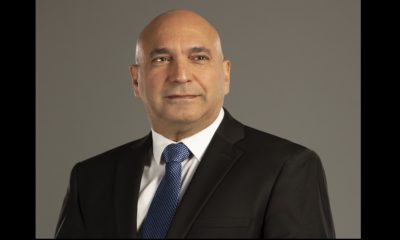On our family vacation this summer we took the kids to the Gerald R. Ford Presidential Library & Museum in Grand Rapids, Mich., and I pointed out to my teenage daughter how forward it was in 1975 when first lady Betty Ford said she urged her husband to appoint a woman to his Cabinet. And if a vacancy came up, she would nudge him to name a woman to the then all-male Supreme Court.
Her comments on CBS’ 60 Minutes, which are among the museum’s exhibits, drew headlines at the time.
That seemed remarkable to my 17-year-old daughter, Charlotte, who has seen a woman serve as speaker of the U.S. House and another come close to becoming the Democratic nominee for president.
But she and other young women coming of age today would be hard-pressed to name many high-ranking female business executives.
And that doesn’t necessarily reflect youthful inattention to the corporate world. If you look at the list of the 100 highest-paid executives in Houston, it’s hard not to notice that they’re all men.
You have to get all the way to No. 150 — Janet Clark, executive vice president and chief financial officer of Marathon Oil Corp. – before the first woman pops up, according a list of top-paid public company executives published in the Chronicle on Sunday.
‘It’s pretty sad
Longnecker & Associates compiled the data for the Chronicle, based on corporate documents filed with the U.S. Securities and Exchange Commission.
Clark is one of only four women in the top 200.
“It’s pretty sad, isn’t it?” said Leanne Atwater, who chairs the Department of Management at the University of Houston‘s C.T. Bauer College of Business.
But it’s not just Houston, said Atwater, who has done work in the area of gender and leadership.
Only 12 of the CEOs leading Fortune 500 companies are women.
Executive recruiter Stephen Newton, area manager for the Houston office of Russell Reynolds Associates, said his clients expect a diverse slate of candidates for top positions.
But Houston is an energy town, and that industry is historically male-dominated, he said.
At the same time, he said, women are making in-roads as senior leaders in professional service firms including law, accounting, business consulting and engineering.
They’re also joining more corporate boards, said Newton, who estimated that the number of women on local corporate boards has more than doubled in the past decade.
Marathon’s Clark said she has seen progress at her own company.
When she joined the company in 2004 – putting her into the top 100 of Houston’s highest-paid executives that year – she was one of two female executives at Marathon.
‘Ahead of the game’
Today there are six, including the general counsel and the heads of global exploration, international production, technology and public policy. Two of Marathon’s eight board members are women.
One of the big selling points for those top women was that Marathon is a place where women can succeed, said Clark, who spreads the message when she gives presentations at energy conferences, alumni groups and universities.
“That clearly puts us ahead of the game,” she said, as more highly qualified women are attracted to the company at a time when the industry is recruiting new talent.
Women made up only 13.8 percent of the labor force in mining, quarrying and oil and gas extraction companies in the Fortune 500 last year, said Mary Boughton, director for research group Catalyst’s west region in Sunnyvale, Calif. Catalyst works with companies to advance women in the workplace and recently released its energy workforce analysis. At the executive level, women hold only 11.6 percent of the top energy jobs, Boughton said.
That means women coming into the industry have fewer role models and often don’t have access to the senior leaders who are instrumental in promoting the careers of subordinates, she said.
Stereotyping continues
Women also suffer from gender stereotyping, such as assumptions that a female employee can’t accept an overseas assignment because of family responsibilities.
Atwater suggested that some women may take themselves out of the running because they don’t want to work 65 hours a week or spend most of their time traveling. But women aren’t victims, and the fact women haven’t reached the C-suite in great numbers is not the fault of men, she said.
Other factors likely are at play. Atwater is just finishing some research in which women and men were asked to rate their leadership skills and said the initial results are “scary.”
When asked to rate their own skills, men and women rated themselves at about the same level, she said.
They differed wildly, however, in predicting how their bosses — who also filled out surveys — would rate them. The men predicted correctly that they’d get good scores. Women speculated that their bosses wouldn’t give them high ratings, while in fact the bosses rated the women about the same as the men.
That disparity leads Atwater to believe women tend to undervalue themselves, which has repercussions down the road.
“Women didn’t think their bosses will see them as good compared to their male counterparts,” she said. “So how willing are they to go ask for a raise?”
lm.sixel@chron.com
original source
http://www.chron.com/business/sixel/article/Working-Where-are-the-women-with-CEO-jobs-2079317.php

 Businessuite Markets2 weeks ago
Businessuite Markets2 weeks ago
 Businessuite News242 weeks ago
Businessuite News242 weeks ago
 Leadership Conversations6 days ago
Leadership Conversations6 days ago
 Businessuite Markets2 weeks ago
Businessuite Markets2 weeks ago
 Logistics & Transportation2 weeks ago
Logistics & Transportation2 weeks ago
 Businessuite Markets2 weeks ago
Businessuite Markets2 weeks ago
 Businessuite News24 International3 weeks ago
Businessuite News24 International3 weeks ago
 Businessuite Markets2 weeks ago
Businessuite Markets2 weeks ago








